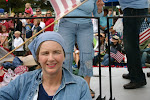Strange Inclusions: 1001 Books You Must Read Before You Die, Part V
While browsing the book 1001 Books You Must Read Before You Die I often thought, of all the books in the world, why are these 1001 books the ones that you "must read" to have the richest fullest life possible (if that's what "before you die" means)? The introduction says much about "the novel" but the compilation lists 1001 books, not 1001 novels. Emphasising the novel may explain the absence of much of the world's non-fiction and poetry, but, in that case, several of the listings don't appear to fit the common definition of "novel," either.
Some examples of non-fiction included:
Walden by Henry David Thoreau (which the compliation admits is, "not exactly a novel")
The Autobiography of Alice B. Toklas
I Know Why the Caged Bird Sings by Maya Angelou
An account of the conquest of "New Spain" written by one of Cortez' soldiers
A Modest Proposal by Jonathan Swift, which is a short satirical essay
The Electric Kool-Aid Acid Test by Tom Wolfe
One Thousand and One Nights is an ancient collection of ancient folklore tied together by a framing device
In Cold Blood by Truman Capote (his famous "non-fiction novel")
Some examples of short fiction included:
The Adventures of Sherlock Holmes, which is a collection of Sir Arthur Conan Doyle's short stories
The Pit and the Pendulum by Edgar Allan Poe
The Kreutzer Sonata and The Death of Ivan Illyich by Leo Tolstoy
Dr. Jeckyll and Mr. Hyde by Robert Louis Stevenson
Contributors to 1001 Books are largely from British institutions and the book was originally published in Great Britain, so that may explain why there is so much emphasis on British and European authors, along with works from the former British empire. (Republicans could lose their minds over how "woke" this compilation is, containing so many works from Asia, Africa, and Latin America.) An American compilation would probably come up with a very different list of books.
Further, I expected more emphasis on the world's great works of scholarship and not so much emphasis on pop-culture entertainment, including what appears to be an over-representation of sci-fi, horror, and detective literature.
Some of the more dubious examples of pop-culture entertainment include: H. G. Wells being represented three times, by The Time Machine, The War of the Worlds and The Island of Dr. Moreau, or that Nabokov is represented by Lolita--and three other books.
The Long Goodbye and The Big Sleep by Raymond Chandler
The Maltese Falcon and The Thin Man by Dashiell Hammett
American Psycho by Brett Easton Ellis
Fear of Flying by Erica Jong
Fear and Loathing in Las Vegas by Hunter S. Thompson (which brushes up against non-fiction)
Religous works: Considering that books of the world's great religions--like the Bible and the Koran--are absent, it's strange that the list includes such religous-themed works as The Last Temptation of Christ and The Satanic Verses.
Lastly, several works normally considered children's literature are haphazardly thrown into the general list, when you think they'd be more likely considered a side category, if included at all--making for something like 1001 Books You Must Read, Including 100 You Should've Read in Grade School.
Perhaps we may accept as explanation, the entry for Mark Twain's The Adventures of Huckleberry Finn which states, "Like many of the titles found in the "Children's Classics" section of bookstores, The Adventures of Huckleberry Finn is not a children's book as we understand the term these days, and it is not surprising that adaptations of Twain's work aimed at children are usually quite heavily edited." I question the wisdom, though, of throwing Pippi Longstocking into the same catch-all net as the Marquis De Sade.


0 Comments:
Post a Comment
Subscribe to Post Comments [Atom]
<< Home